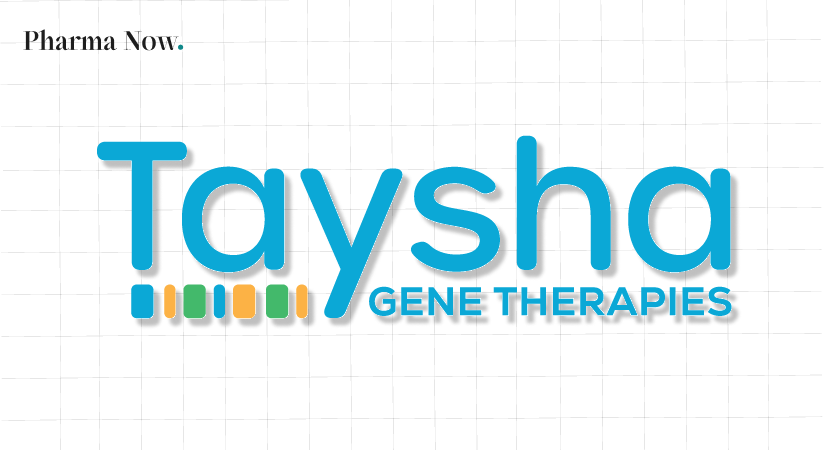Taysha Gene Therapies Reacquires Complete Rights To TSHA-102, Now In Clinical Evaluation For Treating Rett Syndrome
Taysha Gene Therapies regains full global rights to TSHA-102 for Rett syndrome, advancing it toward pivotal trials.
Breaking News
Oct 17, 2025
Simantini Singh Deo

Taysha Gene Therapies, Inc., a clinical-stage biotechnology company focused on developing adeno-associated virus (AAV)-based gene therapies for severe monogenic diseases of the central nervous system (CNS), announced that it has regained full rights to its lead program, TSHA-102, currently under clinical evaluation for Rett syndrome. The 2022 Option Agreement between Astellas and Taysha, which had given Astellas the exclusive option to negotiate for a license to TSHA-102 in Rett syndrome and certain rights related to change-in-control transactions involving Taysha, has now expired.
Under the terms of this agreement, Taysha submitted a comprehensive TSHA-102 data package to Astellas in mid-2025, which included previously disclosed Part A REVEAL clinical data with a data cutoff in May 2025. This initiated a 90-day period for Astellas to decide whether to exercise its option for exclusive negotiations. The data were also shared with the U.S. Food and Drug Administration (FDA) as part of Taysha’s successful application for Breakthrough Therapy designation for TSHA-102. With the expiration of the agreement, Taysha now holds complete, unencumbered global rights to the program.
The previously disclosed Part A REVEAL clinical data (May 2025 cutoff) showed that TSHA-102 was generally well tolerated and achieved a 100% response rate for the trial’s primary endpoint — the gain or regain of one or more defined developmental milestones. This outcome had a less than 6.7% likelihood of occurring naturally in untreated patients, based on existing natural history data. Additional findings demonstrated dose-dependent improvements across several outcome measures, including the Revised Motor Behavior Assessment (R-MBA) and Clinician Global Impression – Improvement (CGI-I).
Sean P. Nolan, Chairman and Chief Executive Officer of Taysha, expressed appreciation for the partnership with Astellas and emphasized the company’s excitement about regaining full control of the program. “We are grateful for our productive collaboration with Astellas and the progress made to date with TSHA-102, including recent clinical results that highlight its meaningful and consistent impact, as well as the receipt of Breakthrough Therapy designation from the FDA,” said Nolan. “Regaining full global rights gives us greater flexibility to strategically advance TSHA-102 and drive long-term value as we continue developing this promising treatment for Rett syndrome.”
He added, “Rett syndrome affects an estimated 15,000 to 20,000 patients across the U.S., EU, and U.K. The significant unmet medical need, combined with the strong clinical results from our REVEAL trials, underscores the major market opportunity for TSHA-102. With our experienced team, solid financial position, and a clear regulatory pathway, we are well-positioned to move TSHA-102 into late-stage development and, if approved, potential commercialization. The first patient dosing in the REVEAL pivotal trial is planned for this quarter.”
Taysha has completed discussions with the FDA regarding the design and statistical plan for the REVEAL pivotal trial. The trial will be a single-arm, open-label study in which each participant serves as their own control. It will evaluate a single intrathecal administration of high-dose TSHA-102 (1x10¹⁵ total vector genomes) in 15 female patients aged between 6 and under 22 years, representing the developmental plateau population of Rett syndrome.
The primary endpoint will measure the response rate, defined as the percentage of patients who gain or regain one or more developmental milestones from a list of 28 covering communication, fine motor, and gross motor skills. These milestones have a 0% to less than 6.7% chance of occurring spontaneously in untreated Rett syndrome patients aged 6 years and older, according to natural history data.
Standardized milestone assessments will be conducted before and after treatment, recorded on video, and evaluated by independent, blinded central raters based on pre-defined achievement criteria. The pivotal trial includes a six-month interim analysis, which may serve as the basis for a Biologics License Application (BLA) submission. Dosing of the first patient in the REVEAL pivotal trial is scheduled to take place this quarter.
